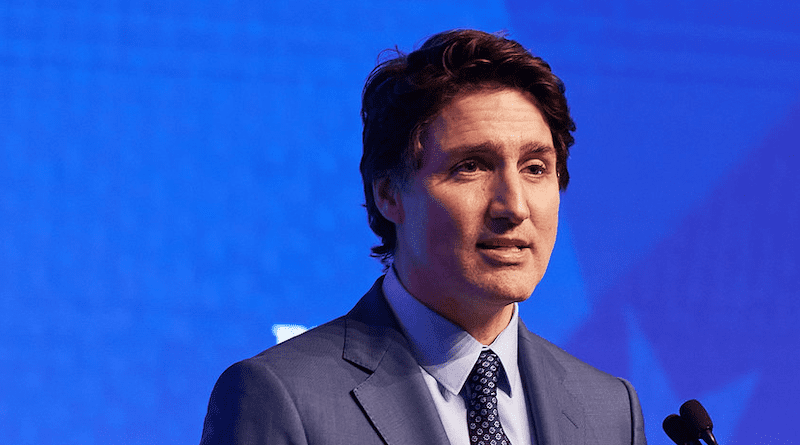Trudeau Accuses China, Pakistan, And India Of Election Meddling – OpEd
The Canadian Prime Minister, Justin Trudeau, has accused China, Pakistan, and India of interfering in the Canadian electoral process. Trudeau made these accusations while giving sworn testimony to the commission investigating alleged foreign interference in the 2019 and 2021 Canadian elections.
Trudeau mentioned that it was ‘unlikely’ that Beijing preferred any specific party, although he acknowledged that certain Chinese officials may have shown preferences. The establishment of the commission was prompted by concerns from opposition lawmakers regarding media reports suggesting China’s potential involvement in the elections. China has consistently refuted these allegations, dismissing them as ‘baseless’.
Moreover, Erin O’Toole, who led the primary opposition Conservative party during the 2021 campaign, estimated that Chinese interference may have cost his party up to nine seats, but it did not alter the election’s outcome. Trudeau’s Liberal Party emerged victorious in both elections. The commission is expected to release an initial report by May 3 and a final report by the conclusion of 2024.
Howbeit, the Canadian Security Intelligence Service (CSIS) also determined that India and Pakistan attempted to interfere in Canada’s general elections in 2019 and 2021. The Indian government was believed to have had the ‘intention to interfere and likely engaged in covert activities’ within Canada, potentially involving the use of an Indian government proxy agent. Pakistani officials clandestinely sought to influence Canadian federal politics to advance the interests of the Government of Pakistan in Canada’.
Canada’s national intelligence agency, CSIS, determined that China meddled in the previous two elections, both of which were won by Prime Minister Justin Trudeau’s Liberal Party. The ensuing controversy prompted Trudeau to establish a commission to investigate foreign interference, with Trudeau himself set to testify before the inquiry panel.
Furthermore, India has firmly rejected the accusations of interference, reiterating its unwavering commitment to non-interference in the democratic processes of other nations. The strained diplomatic relations between Canada and India have been exacerbated by Prime Minister Trudeau’s allegations and assertions of Indian involvement in the assassination of a Khalistani separatist on Canadian territory.
In a robust response to these allegations, Randhir Jaiswal, the spokesperson for India’s External Affairs Ministry, vehemently refuted the claims and accused Canada of meddling in India’s internal affairs. This denial further intensifies the already strained diplomatic ties between the two countries, which were previously strained due to Trudeau’s allegations and claims regarding Indian involvement in the aforementioned assassination. As a response, India temporarily halted visa operations in Canada as a measure of protest.
Moreover, the Canadian government has addressed the accusations of foreign intervention in the elections through a combination of denial, recognition, and action. Prime Minister Justin Trudeau appeared before the investigative commission to assert that the election results were determined by Canadians and were not influenced by foreign interference. Nevertheless, he did admit that China, India, and Pakistan made attempts to meddle in the elections, with China’s interference being characterized as “sophisticated, widespread, and continuous.”
Despite these claims, Trudeau has upheld the integrity of the elections, emphasizing that they were determined by Canadians and that there is always more work to be done to combat foreign interference. The investigation is ongoing, and the final report is anticipated to offer further insights into the extent of foreign interference and the Canadian government’s actions.

